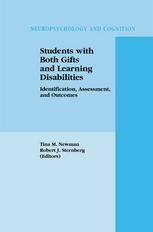

Most ebook files are in PDF format, so you can easily read them using various software such as Foxit Reader or directly on the Google Chrome browser.
Some ebook files are released by publishers in other formats such as .awz, .mobi, .epub, .fb2, etc. You may need to install specific software to read these formats on mobile/PC, such as Calibre.
Please read the tutorial at this link: https://ebookbell.com/faq
We offer FREE conversion to the popular formats you request; however, this may take some time. Therefore, right after payment, please email us, and we will try to provide the service as quickly as possible.
For some exceptional file formats or broken links (if any), please refrain from opening any disputes. Instead, email us first, and we will try to assist within a maximum of 6 hours.
EbookBell Team

4.8
44 reviewsWe were motivated to edit this book when we began to hear stories of exceptional students who were struggling with reading, writing, or math, but who could solve seemingly any problem with computers, or build the most intricate structures with Legos, or could draw beautiful pictures, or could tell the most creative stories but ended up in tears when asked to write it out. How is it possible to have so much talent in some areas and yet to appear to have a disability in another? What resources are available for these students? How can we ensure that these students' abilities are nurtured and developed? Our goal in this book is to provide ideas and possibly even tentative answers for educators and to stimulate more questions to be answered by researchers. We have ourselves been addressing related questions for some time. Our group at the PACE Center at Yale has explored the developmentof abilities, competencies and expertise that allow people to be successful in life. Through this work, we have collaborated with school districts and other educators and researchers across the country to expand the notion ofwhat is traditionally thought ofas intelligence. We use the conceptofsuccessful intelligence to allow for the possibility that the skills traditionally taught in school are not the only ones, and often not even the most important ones, that allow people to be successful in the world.